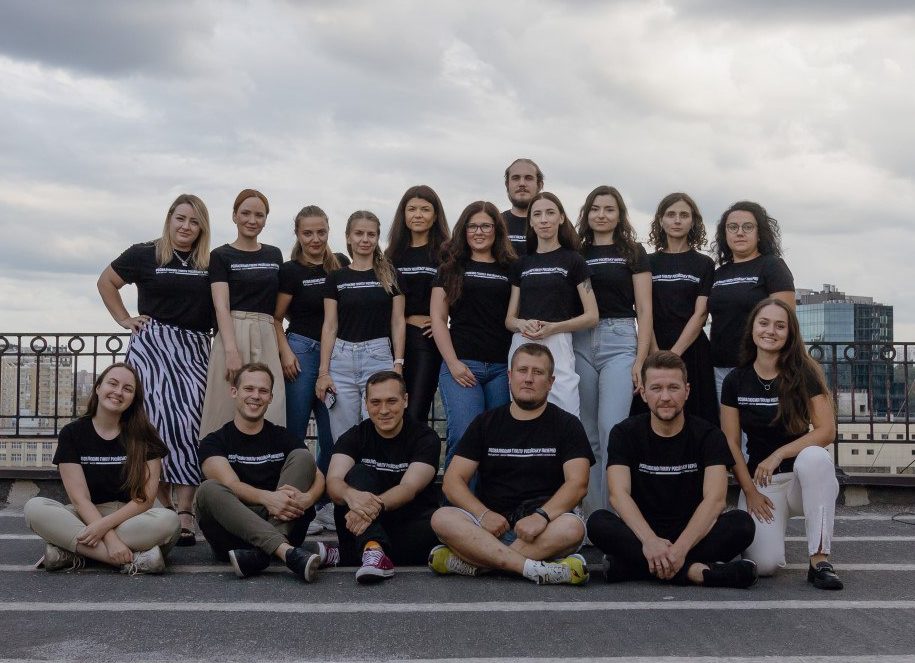New York, February 9, 2024—The Committee to Protect Journalists expressed deep concern on Friday over the surveillance by Ukraine’s domestic security service (SBU) of journalists with the country’s investigative outlet Bihus.Info and called for a transparent investigation into SBU’s actions.
On Monday, Bihus.Info published an investigation which said that 30 members of a branch of the SBU, the Department for the Protection of National Statehood, spied on its journalists and filmed them using illegal recreational drugs at a private party in a hotel on December 27. The outlet said that the cameras used to surveil its staff had been placed in the hotel before the party and that the hotel’s security cameras had shown several SBU agents entering the hotel ahead of the event.
“CPJ is deeply concerned that Bihus.Info journalists were spied on by the Ukrainian security service, which is responsible for combating national security threats. Investigative journalists are not a threat, but the foundation of a healthy democracy,” said Gulnoza Said, CPJ’s Europe and Central Asia program coordinator. “Ukrainian authorities must ensure their investigation into this illegal surveillance of the media is quick and transparent and hold those responsible to account.”
The story broke last month, when YouTube channel Narodna Pravda published a video showing Bihus.Info employees apparently using drugs and recordings of phone conversations about obtaining cannabis and MDMA (also known as Ecstasy) – both of which are illegal in Ukraine. The video, which Bihus.Info director Denys Bihus acknowledged as genuine, has since been taken offline.
Anastasiya Borema, head of communications at Bihus.Info, told CPJ at the time that their analysis of the video showed that the journalists’ phones had been tapped for about a year.
On January 22, Ukraine’s national police said they had registered four cases of privacy violation at the request of four Bihus.Info representatives.
President Volodymyr Zelensky condemned the surveillance, said the matter was under investigation, and signed a decree on January 31 dismissing Roman Semenchenko, head of the Department for the Protection of National Statehood.
SBU responded to Monday’s investigation by Bihus.Info with a statement on Tuesday that said it had launched a criminal investigation into illegal surveillance and that it had originally acted on information claiming that employees of Bihus.Info were clients of drug dealers.
“We believe that independent media are an integral part of a modern democratic society and no actions of individuals can cast a shadow on any of the newsrooms and mass media in general, and all employees of the SBU must act exclusively to ensure the protection of the national interests of the state and society,” it said.
Also on Tuesday, Ukraine’s parliament voted to summon the head of the SBU, Vasyl Malyuk, over the affair. On the same day, Malyuk posted a statement saying that the “actions of individual employees” of the Department for the Protection of National Statehood were “truly outrageous” and “unacceptable” and the Office of the Prosecutor General said in a statement that it had instructed the State Bureau of Investigation (DBR), which investigates crimes committed by public officials, to carry out a pre-trial investigation into criminal proceedings over illegal surveillance. “Violations of the rights of journalists are unacceptable and are subject to careful consideration and appropriate response,” Attorney General Anriy Kostin said in the statement.
Bihus.Info’s Borema told CPJ that the criminal cases into the surveillance of their journalists had been transferred from the SBU and the police to the DBR.
“We are waiting for the continuation of the story and punishment for its participants and organizers,” she said. “The head of the department was fired, while about 30 people were involved in the surveillance operation. These people could not have come up with this operation on their own, so it was approved by the top management,” adding: “The editorial staff of Bihus.Info believes that the order to surveil the journalists was given either by the SBU leadership or by other government bodies.”
Several investigative Ukrainian journalists have faced threats, violence, and harassment over their work since Russia’s full-scale invasion of the country. Journalists seeking press accreditation previously told CPJ that they had been questioned by the SBU and pressured to take certain approaches in their reporting.
On February 3, the military relaxed the accreditation rules that were in place since March 2023 and that had been criticized for limiting the journalists’ access to the frontline.
SBU’s spokesperson Artem Dekhtiarenko declined to respond to CPJ’s query as to whether the surveillance operation had been sanctioned by a prosecutor and referred CPJ to the agency’s previous statements.
Editor’s note: The 12th paragraph in this report has been updated to clarify a quote attribution.
